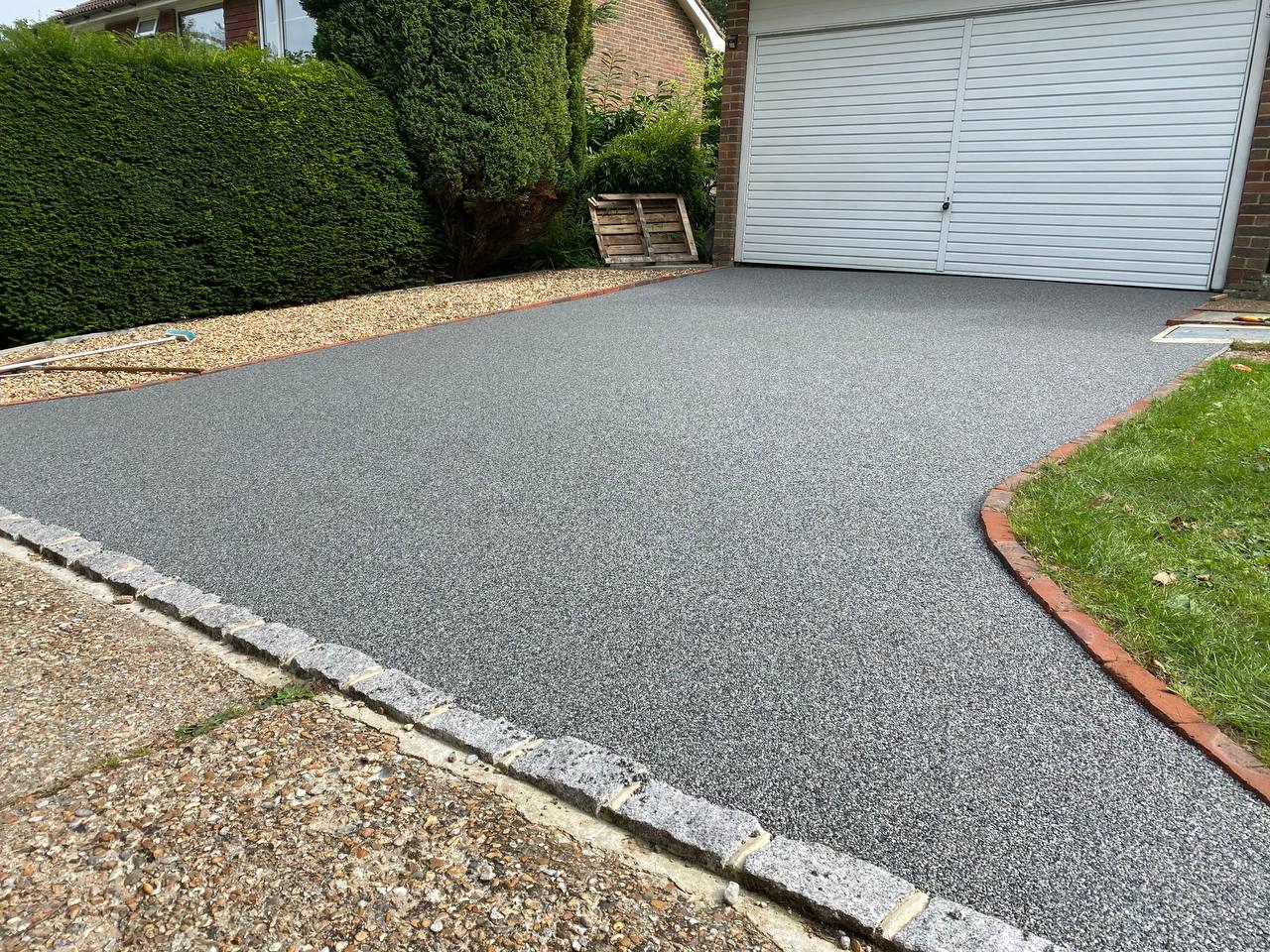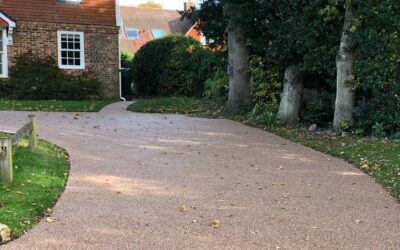Resin surfaces are popular for various applications, from resin driveways and paths to patios and swimming pool areas. One common question people have when installing resin-bound driveways is how long they need to wait before driving on it. This article will discuss the curing process when a resin surface is laid and how long it typically takes to cure fully. We will also discuss factors that can affect the curing time and offer tips for protecting your resin surface during this process.
The Curing Process of Resin Driveways
When resin driveways or patios are installed, the resin goes through a curing process in which the resin hardens and becomes solid and durable. The time it may take for the resin to cure fully can vary depending on several factors. Still, generally, it can take anywhere from 24 to 48 hours for the resin to cure enough to support light foot traffic. The resin may take several days or even a week to cure fully. Then it will be able to support the weight of vehicles. It’s essential to allow ample time to cure before driving on it to ensure that it is solid and stable.
Factors That Affect Curing Time of Resin Driveways
Several factors can affect the curing time of resin-bound driveways, including the type of resin used, the temperature and humidity during installation, and the thickness of the resin layer.
Type of Resin Used
The type of resin used can significantly impact the curing time. Different types of resin can have different chemical compositions; some may cure faster or slower than others. For example, polyurethane resins tend to cure faster than epoxy resins, so if you use polyurethane resin, your surface may be ready for use sooner than if you were using epoxy resin.
Temperature and Humidity
The temperature and humidity during installation can also affect the curing time of a resin driveway. Higher temperatures and humidity levels can speed up the curing process. Lower temperatures and humidity levels can slow it down. In that case, it may cure faster than if you were installing it in slightly cooler and dryer conditions.
The Thickness of the Resin Layer
The thickness of the resin layer can affect the curing time of resin-bound driveways. The thicker the resin layer, the longer it will take for the resin to cure fully. This is because the thicker the layer, the more resin there is to cure, and the more time it will take to harden fully and become solid and durable. So, if you are installing a thick layer of resin, you may need to wait longer for it to cure fully than if you were installing a thinner layer.
How to Know When It’s Safe to Drive on a Resin Driveway
Once your driveway contractors are done with the installation, allowing adequate time to cure before driving on it is crucial. You can do a few things to determine when your resin surface is ready for use. One method to determine the resin’s moisture content is to use a moisture meter. Most resins are fully cured when the moisture content is less than 5%, so if your moisture meter reads less than 5%, your resin surface is likely ready for use.
Another option is to check the surface for any soft or sticky spots. If the resin is still weak or damp, it is not fully cured and is not ready for use. Once the resin is fully cured, it will be hard and smooth to the touch, with no soft or sticky spots.
If there is any uncertainty, it’s always best to err on caution and wait a little longer before allowing foot or vehicle traffic on the surface. This will help ensure that your resin surface is solid and stable, providing a safe and durable walking or driving surface for years to come.
Tips for a Successful Curing Process
To ensure that your resin driveways cure properly and are ready for use on time, you can take a few steps to protect them during the curing process. Here are tips to help you protect your resin surface and ensure that it cures appropriately:
Keep traffic off the surface.
The first and most crucial step is to keep traffic off the surface while it is curing. This includes both foot traffic and vehicle traffic. The weight of people or vehicles on the surface can cause the resin to shift or settle unevenly, affecting the curing process and resulting in a weak or unstable surface.
Avoid exposing the surface to water or other liquids
Avoid exposing the surface to water or other fluids during the curing process. Including rainwater and spills or splashes from watering plants, washing your car, or other activities. Water or other liquids can interfere with the curing process and cause the resin to cure improperly or unevenly.
Use curing agents to speed up the curing process.
To speed up the curing process, you may use curing agents. These chemical agents are added to the resin to help it cure faster. Different curing agents are available, so be sure to choose one compatible with your resin. Seek professional advice regarding the appropriate curing agents from experts with groundwork services like this.
Driveway Contractors Near Me
Resin Driveways Huddersfield offers a wide range of services, including installing resin driveways, patios, paths, and more. Our team has many years of experience, and we can work to your specs or offer a full design service. We are happy to provide you with free estimates and advice. Once the work is completed, we will leave the site clean and tidy. If you are looking for expert driveway contractors, give us a call today and start adding value to your home by making the improvements you need.

